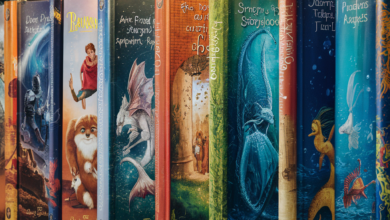
The Kristen Archive: Exploring Its Origins, Impact, and Legacy
The internet has long been a repository for niche communities, fan creations, and digital archives, and The Kristen Archive stands as one of its intriguing mysteries. Depending on who you ask, it might evoke memories of early 2000s fanfiction, obscure data storage, or even a bygone online persona. While the exact nature of The Kristen Archive remains ambiguous—whether it was a fan site, a personal collection of writings, or something else entirely it represents a fascinating slice of internet history. This article delves into the possible meanings behind The Kristen Archive, examining its cultural significance, its role in online fandom, and why such digital relics continue to captivate us long after they fade from the mainstream.
1. What Was The Kristen Archive? Uncovering Its Possible Meanings
The name “The Kristen Archive” suggests a curated collection, but of what? Some speculate it was a fanfiction repository, possibly dedicated to a specific fandom or pairing, much like FanFiction.Net or Archive of Our Own (AO3) in their early days. Others believe it could have been a personal blog or writing portfolio from an early internet user named Kristen, preserving poetry, short stories, or diary entries. There’s also the possibility that it was a private data archive, later discovered and shared among online communities. This section explores the most plausible theories, piecing together clues from forum discussions, Wayback Machine snapshots, and anecdotal accounts from those who might remember it.
2. The Role of Fanfiction Archives in Early Internet Culture
If The Kristen Archive was indeed a fanfiction hub, it would have been part of a larger movement of DIY storytelling communities that flourished in the late 1990s and early 2000s. Before centralized platforms like Wattpad or AO3, many fanworks were hosted on independent GeoCities pages, LiveJournal communities, or small personal archives. These sites were often laboriously maintained by dedicated fans, featuring disclaimers, guestbooks, and manually updated indexes. Some became legendary within their fandoms, only to vanish when web hosting expired or creators moved on. This section examines how The Kristen Archive (if it was such a site) would have fit into this ecosystem, and why so many of these early archives are now lost to time.
3. The Digital Preservation Dilemma: Why Archives Like Kristen’s Disappear
One of the biggest challenges of early internet culture is link rot the gradual disappearance of websites as domains expire, servers shut down, or creators abandon projects. If The Kristen Archive was a personal project, its vanishing act wouldn’t be unusual. Many early fan sites, blogs, and forums have been wiped from the web with only fragments surviving in Internet Archive snapshots or forum mentions. This section discusses the broader issue of digital preservation, asking: Should old fan archives be saved? Who gets to decide what’s worth keeping? And how much of early fandom history has already been lost?
4. The Myth and Memory of Lost Online Spaces
Even if The Kristen Archive no longer exists (or never did in a widely known form), its name carries a nostalgic weight. The early internet was full of semi-anonymous creators, forgotten websites, and inside jokes that only a small group of users understood. Today, people still search for remnants of these lost spaces, whether out of sentimental attachment or sheer curiosity. This section explores why obscure archives like Kristen’s linger in collective memory, comparing it to other “lost media” phenomena from deleted YouTube videos to defunct MMORPGs.
5. Conclusion: The Kristen Archive as a Symbol of Internet Ephemerality
Ultimately, The Kristen Archive whether real or misremembered serves as a reminder of how fragile digital history can be. Unlike physical books or recorded media, early internet content often vanished without a trace, leaving behind only rumors and half-reconstructed memories. If it was a fanfiction archive, a personal blog, or just an obscure reference, its legacy lies in what it represents: a time when the internet felt smaller, more experimental, and full of undiscovered corners. For those who seek it today, the search itself is a testament to the enduring allure of lost online worlds.




